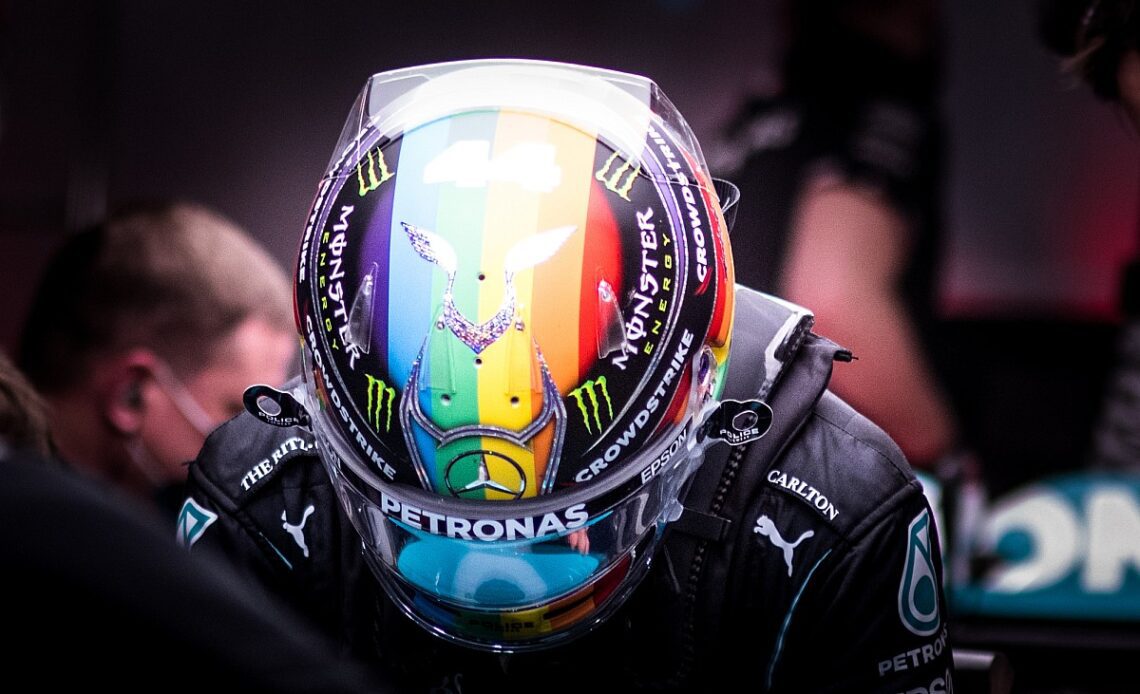In a document distributed to the teams on Friday, titled, ‘Guidance on the Principle of Neutrality (Article 12.2.1.n of the ISC)’ the governing body explained how an update to its long-standing International Sporting Code published late in 2022 will work in practice regarding drivers making personal statements on various issues and topics.
In the document, a copy of which has been seen by Motorsport.com, the FIA insists drivers are free to express their own beliefs, but only at specific times and in certain circumstances, which generally cover the time of sporting competition (on-track action, the podium and drivers’ parade).
But it reiterates they must still seek permission to discuss certain topics.
The FIA says the drivers are free to “express their views on any political, religious or personal matter before, during and after the International Competition, in their own space, and outside the scope of the International Competition”, such as on social media and during media interviews, including the FIA press conferences.
But the clarification of Article 12.2.1.n goes on to state that in addition to not making particular statements during the drivers’ parade, national anthem ceremonies, pre- and post-season driver group photographs and podium (so including visual gestures, such as wearing a certain item of clothing) “participants are not permitted to make political, religious and/or personal statements in violation of the general principle of neutrality during [the] FIA press conferences (except in response to direct questions from accredited journalists).”
The FIA has also issued guidance on what constitutes “political”, “religious” or “personal” expressions, as concerning Article 12.2.1.n.
This states a rule breach will have been considered to have occurred if: “The general making and display of political, religious and personal statements or comments notably in violation of the general principle of neutrality promoted by the FIA under its Statutes, unless previously approved in writing by the FIA for International Competitions, or by the relevant ASN for National Competitions within their jurisdiction”.
F1 races stewards will determine if a rule breach has occurred on a case-by-case basis.
The FIA clarification states that an example of a political statement breaching the rules would be a driver not asking permission to discuss “if they make any unapproved statements or comments” regarding “Any local, regional, or national…
Click Here to Read the Full Original Article at Motorsport.com – Formula 1 – Stories…

